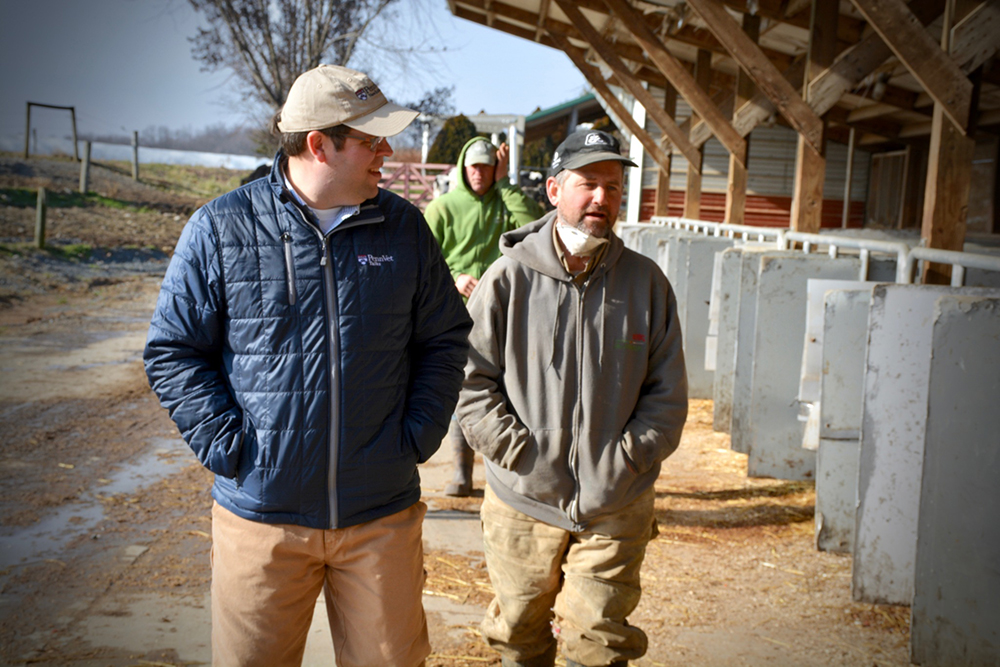
The Health of a Dairy Farm
Growing up on a 200-head Pennsylvania dairy farm, Dr. Joe Bender just knew what his career path would be.
“I was going to be a dairy practitioner,” he said. “I specifically tailored my program in vet school to suit those needs.”
He made true on his goal and after graduating from Iowa State in 2010, went back to his home state to work as a veterinarian in a traditional 10-doctor dairy practice.
“I did that for three years,” Bender said. “I didn’t think I was going to stay in practice forever, but I thought it would have been longer than three years.”
A career change was in the offing when Bender realized the dairy producers he was providing care for were seeking answers he couldn’t provide in traditional veterinary practice.
He’s found those answers at the University of Pennsylvania’s School of Veterinary Medicine (Penn Vet) where he serves as a veterinarian and assistant professor of clinical dairy production medicine with the Center for Animal Health and Productivity.
In that role, Bender helps farmers on a different level, helping them understand the health of the farm and their herd. He works specifically with dairy farmers who are struggling financially.
“We refer to this as caring for the ‘health’ of the farm,” Bender said. “Healthy animals alone do not guarantee a profitable farm. The interface of production and economics really interested me.”
Bender is housed at the New Bolton Center, about an hour outside of Philadelphia in Chester County. He lives in Lancaster County, which has the highest animal density in the United States.
And a vast majority of those animals are dairy cows.
“I have carved out a niche here,” Bender said. “I spend most of my time providing consultative support to the region’s dairy producers, dealing with real-world, on-farm issues.”
His advice to the dairy producers isn’t always met with open arms.
“Unfortunately, many of the dairy farms I work with have not taken the time to look at finances until they have to,” Bender said, “and now they have to do it to stay in business. I get very frank with producers and have found most of my clients really want somebody to tell them what to do.
“Once I show them the data, then usually they are on board and begin to make more informed financial decisions. Unfortunately, like any other veterinary area, there are always certain clients that do not heed advice.”
While Bender spends a vast majority of his time consulting out in the field with dairy producers, he is also an excellent classroom instructor at Penn Vet and has been honored with the school’s Zoetis Distinguished Teaching Award.
“Being able to teach and interact with students was one of the reasons why I came to Penn Vet,” Bender said. “I try to allow students to be healthy skeptics.
“Usually students figure things out on their own. I just try and help them get through that process.”

